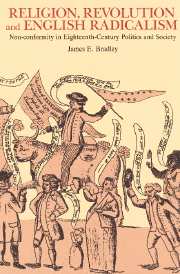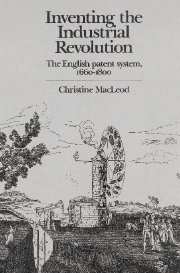Religion, Revolution and English Radicalism
In the age of the American Revolution, the political issues surrounding John Wilkes, the colonies, and parliamentary reform agitated the nation, and recent studies of party ideology and voting behavior have shown how these national issues divided England. But subsequent work on the peerage and Anglican political theory has depicted a more placid, deferential populace. This book engages the discussion by drawing attention to the social and political activities of the English Dissenters. The Nonconformists' legal standing, social status, and political behavior help illumine a number of unexamined causes for both the social stability and the political stresses of Hanoverian England. Legal inequities provoked strong opposition to the government's American policy from the dissenting elite, and while the ministers' publications suggest the depth of popular discontent, previous accounts have been unable to show how popular sentiment was transformed into radical behavior. By comparing sermons, political pamphlets, and election ephemera to poll books, city directories, and baptismal registers, this book offers an integrated approach to the study of ideology and behavior.
Product details
August 2002Paperback
9780521890823
496 pages
229 × 152 × 28 mm
0.72kg
Available
Table of Contents
- Preface
- List of tables, figures and maps
- Abbreviations
- 1. An introduction to religion in eighteenth-century political culture
- Part I. The Legal Status, Social Structure, and Ideology of Nonconformity:
- 2. Nonconformity, the law, and society
- 3. Nonconformity in politics: influence and independence
- 4. The dissenting pulpit, political ideology, and American independence
- 5. The dissenting pulpit and political radicalism in England
- Part II. Poll Books, Parliamentary Politics, and Nonconformity:
- 6. The dissenting interest and the American crisis in Bristol
- 7. The dissenting vote and electoral independence in Brstol and Great Yarmouth
- 8. Deference and the dissenting vote in Newcastle, Liverpool, Hull, and Colchester
- Part III. Petitions for Peace, Nonconformity, and Popular Politics:
- 9. The petitions of 1775: popular politics and the American crisis
- 10. The petitioners of 1775: law, social status, and religion
- Conclusion
- Appendix
- Bibliography
- Index.







